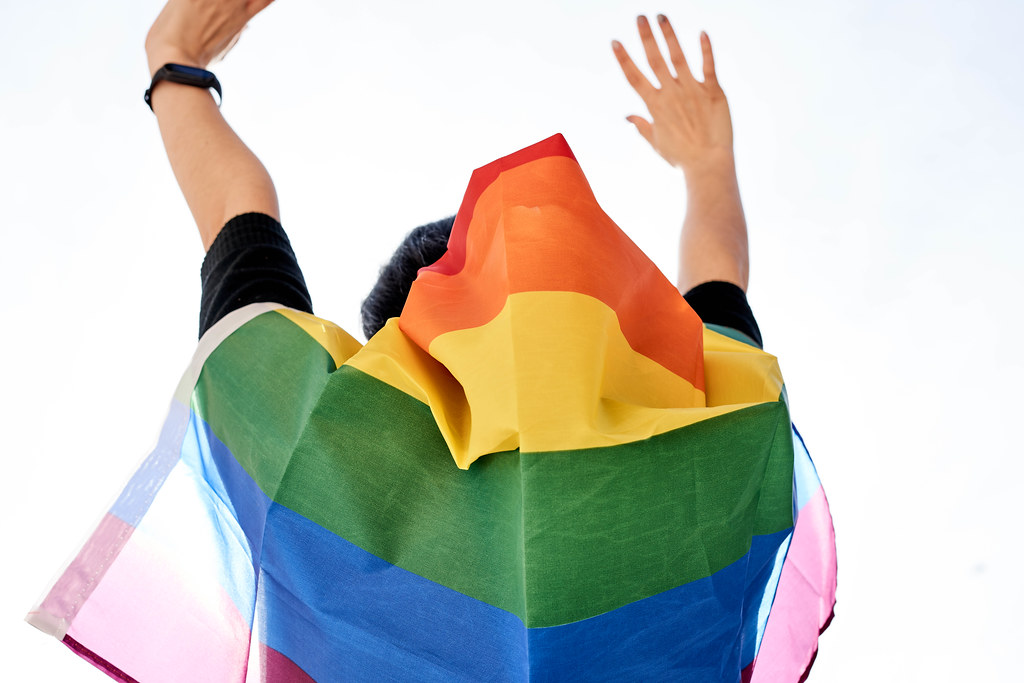The un-link between monkeypox and MSMs
"If I get monkeypox, will everyone know I am gay?” (Photo: Marco Verch via Flickr)
In recent reports, monkeypox, like HIV/AIDS, has been primarily found among men who have sex with men (MSMs). This has led to the UNAIDS releasing their own statement denouncing the “racist” and “homophobic” coverage of monkeypox.
To clarify, monkeypox is very different from HIV/AIDS. Headlines these days seem to insinuate otherwise. If you’re among the chronic headline-only readers of today (we can’t blame them 100%—some people are just busy), you might assume monkeypox is another “gay-related immune deficiency” or “gay man’s pneumonia.”
We’re here to tell you it’s not. It’s not mainly sexually transmitted like HIV, but it can be caught during sex. Monkeypox could be transmitted through prolonged physical contact and exposure to respiratory droplets, bodily fluids, and contaminated materials from infected persons. Like HIV, transmission could happen between anyone, regardless of their gender or sexual orientation.
History lessons from the LGBT
The HIV/AIDS outbreak from 40 years ago should teach us how to prevent MSMs from suffering the same discrimination they did—and still do—during and after.
(READ ALSO: Scientists from the 80s saw monkeypox coming too.)
Tying MSMs to another disease that’s gaining traction globally now could lead to poorer health outcomes and social opression—humiliation, imprisonment, and even death—in countries where homosexuality is still illegal.
This discrimination also creates the misconception that others are somehow immune to or not at risk of monkeypox. This could be especially dangerous for vulnerable groups, namely young children, pregnant women, and immunocompromised persons. Coincidentally, persons living with HIV (PLHIV) are among those most at risk of monkeypox. This may justify officials warning against monkeypox ahead of Pride Month festivities—if only there wasn’t a hint of homophobia.
If anything, the LGBTQIA+ community should be credited for helping raise initial awareness on monkeypox. Because MSMs are those most likely to seek care in sexual or primary health clinics, they were also among the first people to be diagnosed with monkeypox.
In fact, diseases like HIV and monkeypox can be linked to conditions such as financial status, education, physical environment, and employment. For example, in the African region where both diseases have been endemic for decades, its prevalence could point to little to no access to quality healthcare.
Stories that make or break stigma
Organizations like UNAIDS and Al Jazeera emphasize the value of shifting the conversation to the public health aspect of the outbreak. This means “synthesizing social determinants of health that allow marginalized communities to be at higher risk for the spread of such viruses.”
In that vein, media should be more cautious of the language in their stories and take care not to frame the disease around sexual orientation and behavior as much—or at all, if possible.
Besides, a person’s SOGIE is fluid, and may change over time. Just because a gay man thought he was straight years ago, it does not make him more immune to HIV or monkeypox then than now. That should pretty much sum it up for anyone still confused at this point.
Anyway, Happy Pride Month, everybody.


